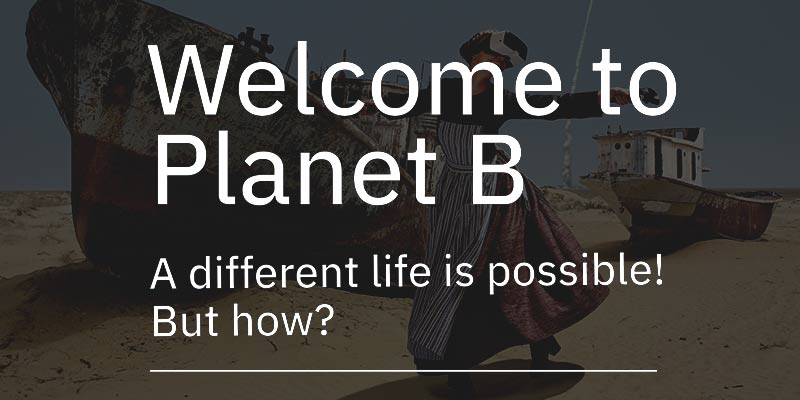Education
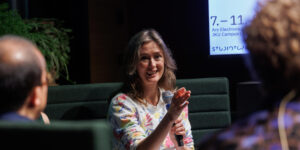
Transdisciplinary Cultures of Collaboration
Andrew Newman (AU/AT), Audrey-Flore Ngomsik (FR/BE), Kat Austen (GB/DE), Mairéad Hurley (IE), Andres Colmenares (CO/ES)
Eine nachhaltige Zukunft erfordert integrative, interdisziplinäre und sektorübergreifende Ansätze, um die komplexen Interdependenzen zwischen menschlichen, nicht-menschlichen und übermenschlichen Systemen zu bewältigen. Kann ein STEAM-Bildungsansatz, der den Wert der Kunst bei der Förderung des kreativen und kritischen Denkens hervorhebt, sicherstellen, dass wir über die notwendigen Fähigkeiten zur Bewältigung dieser Herausforderung verfügen?
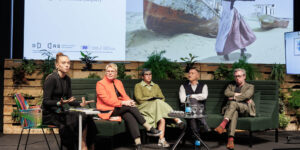
Hatching the Future of Museums
Michael John Gorman (IE), Olga Tykhonova (UA/AT), Merete Sanderhoff (DK), David Vuillaume (CH/DE), Johanna Eiramo (FI), Lauren Vargas (US/NL)
Im Schatten eines klimatischen und ökologischen Notstands, der sich auf alle Bereiche des sozialen, politischen und wirtschaftlichen Lebens auswirkt, müssen Zweck und Wirkungsbereich von Museen (erneut) in Frage gestellt werden. Wie können sich Museen im Zeitalter des Klimawandels repositionieren? Können Museen zum Handeln in Bezug auf planetarische Krisen inspirieren, und können museale Einrichtungen für ein vielfältigeres, interdisziplinäres Publikum neu konzipiert werden?
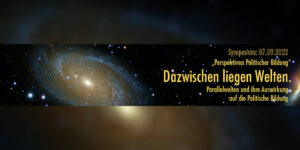
Symposium Perspektiven Politischer Bildung: Parallelwelten und ihre Auswirkung auf die Politische Bildung
Upper Austria Teacher-Training College x Upper Austria Chamber of Labor and Ars Electronica
Die Politische Bildung ist gefordert, sich mit Parallelwelt-Konstruktionen auseinanderzusetzen, um einer Destabilisierung unserer demokratischen Gesellschaft entgegenzuwirken. Das diesjährige Symposium möchte dazu einen Beitrag leisten.
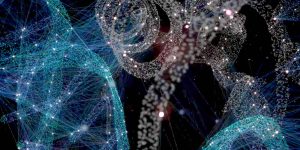
The Nature of Systems
Sebastian Pirch (AT), Norbert Unfug (AT), Christiane V. R. Hütter (AT), Jörg Menche (DE)
We live in the anthropocene, where human and natural ecosystems collide. In this interactive visualization, we explore the emergence and breakdown of complex systems from the cellular to the planetary scale. Life emerges from the interactions of biomolecules, cities from connecting people, the global society from sharing ideas. These systems can be beautiful, but also fragile.
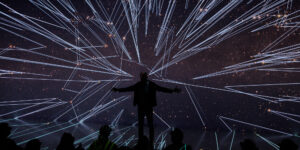
Superlative telescopes: In the desert and far behind the moon
Dr. Dietmar Hager — Stargazer Observatory (AT)
The well-known Hubble Space Telescope (HST) has reached its limits. Modern telescopes will have to work outside visible light to make new discoveries possible. The JWST (James Webb Space Telescope) is one of the successors. It will be supported by Earth-based telescopes, such as the Giant Magellan Telescope (GMT), which is currently being built in Chile. The talk reaches out from the HST to the JWST and the GMT and gives an idea of how new insights will revolutionize our understanding of space.
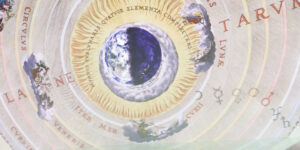
Searching for Planet B: How Astronomy Visualization and Remote Sensing Guide Us to Humanity’s Future
Dan Tell (US)
Thousands of years of increasingly precise measuring and modeling have revolutionized humanity’s understanding of the universe. We now know Earth is one of many planets, but it is uniquely habitable. The same research and techniques we use to understand these other worlds can help us understand what made Earth habitable in the first place and how we can restore and sustain this planet into the future.

Ars Electronica Futurelab: Dataspace: Russia/Ukraine.Deep Impacts
Nikkei Innovation Lab: Hiroyuki Watanabe (JP), Nobuyuki Oishi (JP), Takeshi Yamada (JP), Akihito Takei (JP), Masami Fujita (JP), Ars Electronica Futurelab: Arno Deutschbauer (AT), Manuel Dobusch (AT), Nicolas Naveau (FR, AT), Hideaki Ogawa (JP), Raphael Schaumburg-Lippe (AT), Julian Zauner (AT)
DATASPACE proposes a "newspaper of the future": Here, the Ars Electronica Futurelab and financial newspaper Nikkei's Innovation Lab demonstrate, how art and journalism can help to listen carefully to facts and think deeply rather than just consuming and reacting to news. The first project focuses on the profound impact Russia's war on Ukraine has all around the world now and in the future - inviting visitors into a sort of Zen garden of data, using the unique infrastructure of Deep Space 8K.
